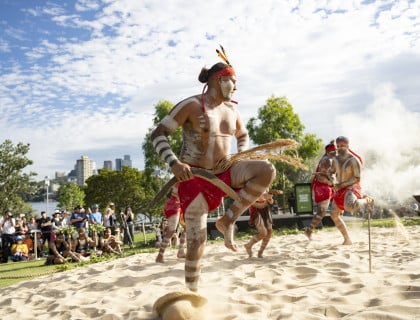Australia Day 2024: How it Began, History, Moments And Everything To Know
January 26th, 2024, marks another Australia Day, a date steeped in both celebration and controversy. While it’s traditionally a day for barbecues, beach trips, and fireworks, a deeper understanding of its history and complexities is crucial. Let’s delve into the origins, key moments, and diverse perspectives surrounding this significant day in the Australian calendar.
How it Began:
Our story begins in 1788, when Captain Arthur Phillip led the First Fleet into Sydney Cove. This event, often hailed as the foundation of modern Australia, marked the start of British colonization. But woven into this narrative is the profound disruption of Indigenous life. For millennia, Aboriginal and Torres Strait Islander communities thrived on this land, their intricate cultures and connection to Country echoing across generations. The arrival of the First Fleet severed these threads, dispossessing them of their lands, disrupting their way of life, and setting in motion a long and painful chapter of colonialism.
The consequences of colonization were far-reaching, leaving legacies that still resonate today. Indigenous Australians faced cultural dispossession, violence, assimilation policies, and ongoing struggles for recognition and justice. While some view January 26th as a national celebration, for many Indigenous Australians, it symbolizes “Invasion Day,” a stark reminder of the past and its lingering effects.
History:
While Australia Day is seen as a national holiday by many, it’s important to acknowledge the painful legacy of colonization for Indigenous Australians. The arrival of the First Fleet disrupted their way of life, leading to dispossession of land, cultural marginalization, and generations of trauma. For many Indigenous Australians, January 26th symbolizes a day of mourning and a reminder of ongoing inequalities.
Key Moments:
Throughout history, significant moments have woven themselves into the narrative of Australia Day:
- 1938 Bicentennial: The 200th anniversary sparked nationwide protests, highlighting Indigenous marginalization and demanding recognition.
- 1968 Yirrkala Case: This legal landmark challenged the terra nullius doctrine, asserting Indigenous land rights and opening the door for further discussions about sovereignty.
- 1992 Mabo vs Queensland: This High Court decision overturned terra nullius. Also recognizing Indigenous land ownership and paving the way for Native Title claims.
- 2017 Uluru Statement from the Heart: This powerful document articulated the aspirations of Indigenous Australians for constitutional recognition, treaty-making, and truth-telling.
- 2020s Black Lives Matter and Change the Date: The global movement and Australian activism amplified calls for justice and recognition. Also with the “Change the Date” movement gaining momentum.
Diverse Perspectives:
Australians hold a multitude of views on Australia Day. Some celebrate it as a day of national pride and unity. While others also see it as a reminder of colonial violence and seek a more inclusive commemoration. Understanding these diverse perspectives and engaging in respectful dialogue is crucial for moving forward as a nation.
Things to Know in 2024:
- Protests and rallies: Expect demonstrations and events highlighting Indigenous perspectives and calling for change.
- Official events: Government-organized ceremonies and community gatherings celebrating Australian culture will take place.
- Reconciliation initiatives: Many Australians will participate in events fostering understanding and connection between Indigenous and non-Indigenous communities.


